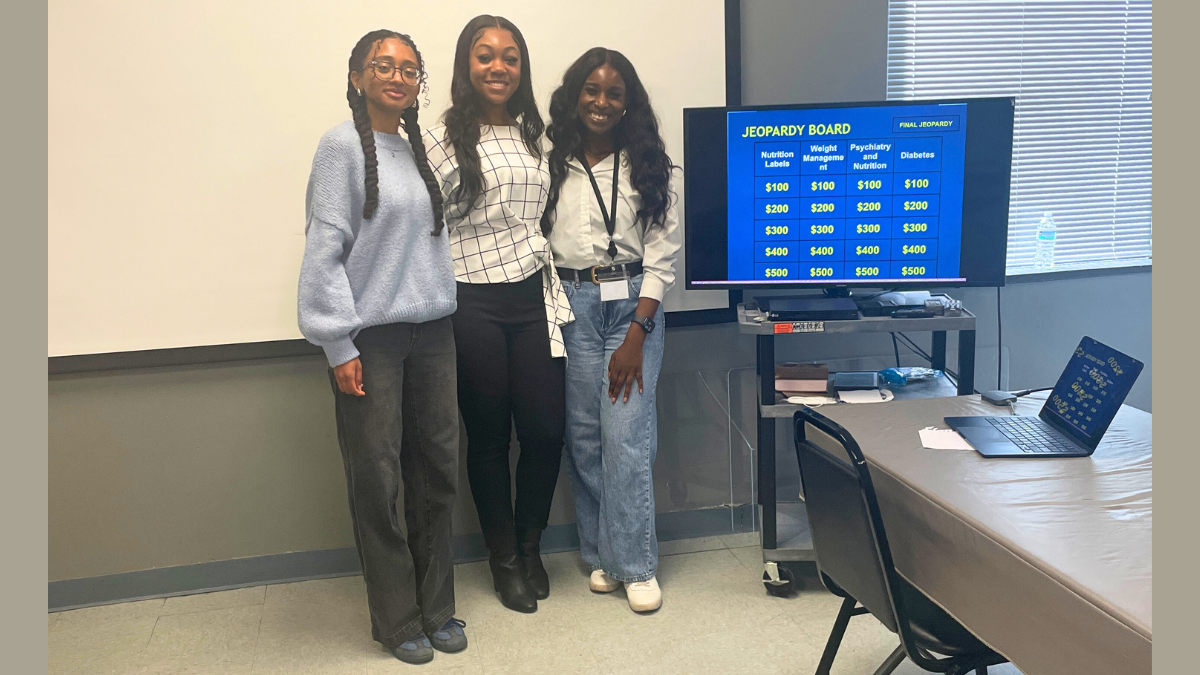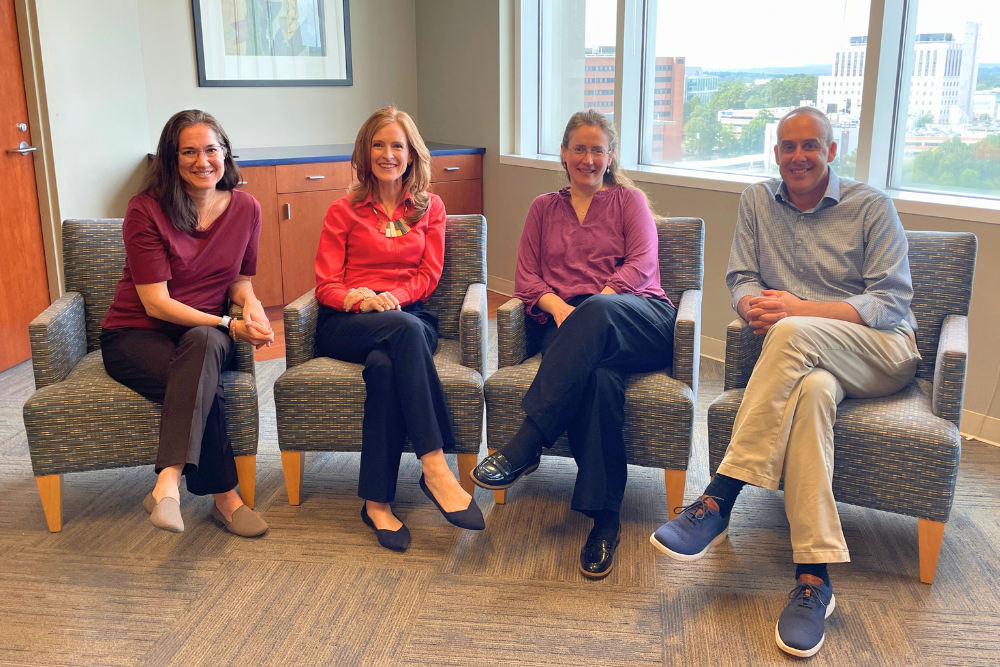Faculty and staff from the Department of Psychiatry & Behavioral Sciences have shared their expertise in this area within and beyond the Duke campus, from penning op-eds to engaging in a range of research and other activities. Below are some highlights of their work.
Linda Kerandi Receives 2026 James H. Carter, Sr. Community Service Award
Linda Kerandi, MD, a fourth-year psychiatry resident, received this year’s James H. Carter, Sr. Community Service Award. Carter was the first Black full professor of psychiatry at Duke, and the award was established in honor of his dedication to serving the underserved.
Health Psychologists Build Community & Skills through Monthly Series
The clinical health psychology symposium aims to build community and connection while providing learning opportunities specific to the unique challenges of providing psychological services in medical and surgical settings. The virtual monthly series was founded by Duke Psychiatry's Katherine Applegate, PhD.
NCCU Students Describe Duke Internships as Empowering, Inspiring
As part of the thriving collaboration between Duke University and North Carolina Central University, three NCCU students recently completed internships facilitated and managed by the Duke-NCCU Bridge Office, housed within Duke CTSI. The scholars, who made up the fourth cohort of NCCU students to intern with Duke Psychiatry & Behavioral Sciences, presented on their internship experiences during the program’s closing ceremony in April.
Providing Spiritually-Informed Care to Muslim Patients during Ramadan & Beyond
Psychiatry residents Abdelrahman Ibrahim, MBBS, and Adam Howard, MD, ScM, and assistant professor Hiba Zaidi, MBBS, are developing strategies to help Duke’s health system better respond to the religious considerations of Muslim patients, particularly in the behavioral health environment. Their efforts include providing guidance on accommodating patients during Ramadan and improving access to clothing appropriate for Muslim patients on psychiatric units.
Staff Spotlight: Henry Edmonds’ Past & Present Roles Are All Rooted in Social Justice
Henry Edmonds, an outreach program coordinator at the Duke-UNC Alzheimer’s Disease Research Center since 2022, takes pride in his success with increasing African American participation in the center’s studies. Prior to his current role, he served for 20 years in a similar position with the Bryan Alzheimer’s Disease Research Center in the Department of Neurology.
Emily Aarons Receives 2025 James H. Carter, Sr. Community Service Award
Emily Aarons, MD, a third-year psychiatry resident, received this year’s James H. Carter, Sr. Community Service Award. Carter was the first Black full professor of psychiatry at Duke, and the award was established in honor of his dedication to serving the underserved.
Duke Psychiatry Engages a Broad Range of Expert Speakers
Through Grand Rounds and other events, Duke Psychiatry hosts speakers from diverse backgrounds to share their expertise on a wide range of topics, including how history, culture, social identities, community, and belonging influence mental health and well-being.
Using Restorative Justice to Build a Culture of Belonging & Continuous Growth
In the summer of 2023, a Duke Psychiatry & Behavioral Sciences team was selected to participate in a new yearlong pilot program, “Shifting the Paradigm: Restorative Justice as a Framework for Workforce Well-Being.” Offered through the Office for Faculty, in partnership with the School of Medicine’s Office of Culture, Engagement & Impact, the program aimed to help address burnout, compassion fatigue, and harms, while promoting workforce wellness and satisfaction in the School of Medicine community.
Community Partnership Creates an Inclusive Experience for Autistic Moviegoers
The Sensory Friendly Film Series, an initiative created through a partnership between the Carolina Theatre of Durham and the Duke Center for Autism and Brain Development, provides a safe and welcoming cinema experience for autistic individuals and others in need of sensory accommodations.
Interpretation Services Make Duke Research Accessible to Spanish Speakers
At the Duke Center for Autism and Brain Development, researchers are working to ensure that research studies are accessible and research outcomes are broadly applicable. The research team partners with interpretation services to bring Spanish-speaking families into the study. Interpretation goes beyond direct translation; in addition to being understandable, all materials are designed to be culturally appropriate.









